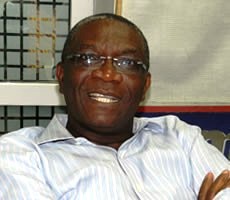Government has urged the authorities of the University of Ghana to rescind its decision to impose user charges on motorists who use the university campus roads.
The University said the introduction of the toll was as a result of a Ghc7 million loan the University acquired to rehabilitate and construct roads on campus.
In the initial stages, private vehicles were to pay Ghc1, taxi and commercial vehicles were to pay Ghc2 while heavy duty trucks were to pay Ghc3 at the University’s toll booth per entry.
However, after a series of meetings and considerations, the University said students can access the road without paying road tolls.
It said commercial drivers who were supposed to pay Ghc400 yearly due to the introduction will now pay Ghc100.
But speaking to Graphiconline, Chief of Staff at the Presidency, Mr. Prosper Bani, said motorists and the general public are facing hardship because of the introduction of the toll and has indicated that government was ready to work expeditiously with the university on the most effective way to absorb the cost of rehabilitation of the roads on campus.
Speaking to the issue on Peace FM’s Kokrokoo, Hon. Emmanuel Kyeremanten Agyarko, Member of Parliament (MP) for Ayawaso West Wougon; where the University is located, said if government is asking them to stop collecting the toll and has decided to absorb the cost, the University authorities must insist that ‘government sticks to its word to pay the amount involved’
“If government is asking the University to stop collecting the toll, they should pay the amount they (university) borrowed. They cannot just ask them to stop… they should indeed follow measures to absorb the loan,” he indicated.
He also stated that the fact that government is asking the University to rescind its decision does not mean that motorists can turn the roads within the campus ‘to another N1 highway’ because the University still “reserves the right to entry.”
General News of Monday, 10 February 2014
Source: peacefmonline.com
Insist gov't pays the money - Agyarko tells UG

















